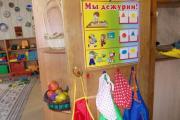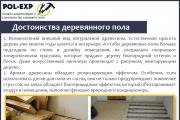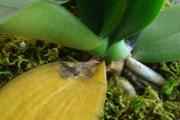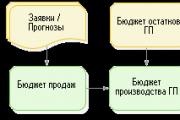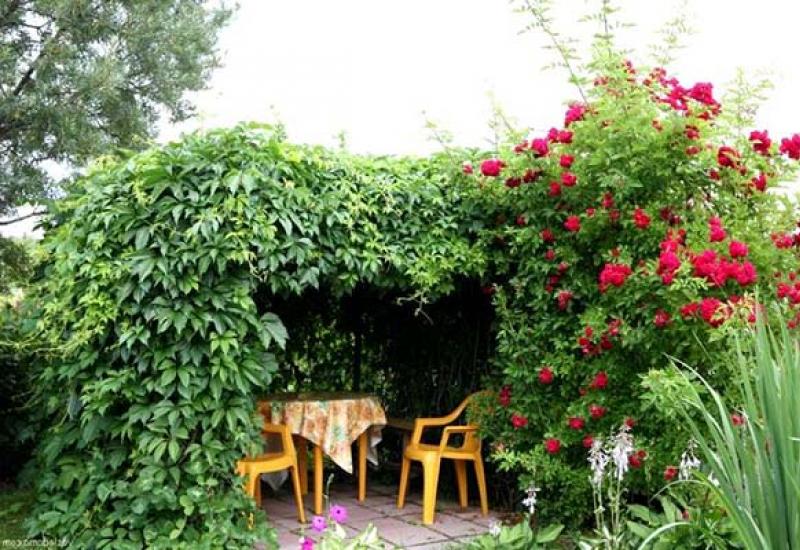Matvey Platov. Platov, Matvey Ivanovich
Ataman of the Don Cossack Army (from 1801), cavalry general (1809), who took part in all the wars of the Russian Empire of the late 18th - early 19th centuries
Matvey Platov
short biography
Count (1812) Matvey Ivanovich Platov(1753-1818) - ataman of the Don Cossack Army (from 1801), cavalry general (1809), who took part in all the wars of the Russian Empire of the late 18th - early 19th centuries. In 1805 he founded Novocherkassk, where he moved the capital of the Don Cossack Army.
Platov was born in the capital of the Don Cossacks, Cherkassk (now the village of Starocherkasskaya, Aksay district, Rostov region) and was baptized in the Church of Peter and Paul, which has survived to this day.
“Of the elder children of the Don Army” - his Cossack father was a military foreman. By birth he belonged to the Old Believers-Priests, although due to his position he did not advertise this. Mother - Platova Anna Larionovna, born in 1733. Married to Ivan Fedorovich, they had four sons - Matvey, Stefan, Andrei and Peter.
Matvey Ivanovich entered service on the Don in the Military Chancellery in 1766 with the rank of constable, and on December 4, 1769 he received the rank of captain.
In 1771 he distinguished himself during the attack and capture of the Perekop line and Kinburn. Since 1772 he commanded a Cossack regiment. In 1774 he fought against the highlanders in the Kuban. On April 3, he was surrounded by Tatars near the Kalala River, but managed to fight back and forced the enemy to retreat.
In 1775, at the head of his regiment, he took part in the defeat of the Pugachevites.
in 1782-1783 he fought with the Nogais in the Kuban. In 1784 he participated in the suppression of uprisings of Chechens and Lezgins.
In 1788 he distinguished himself during the assault on Ochakov. In 1789 - in the battle of Kaushany (September 13) during the capture of Akkerman (September 28) and Bender (November 3). During the assault on Izmail (December 11, 1790) he led the 5th column.
Since 1790, ataman of the Ekaterinoslav and Chuguev Cossack troops. On January 1, 1793, he was promoted to major general.
In 1796 he took part in the Persian campaign. After the campaign was suddenly canceled by decree from St. Petersburg, having disobeyed the Highest command, he remained with his regiment to guard the headquarters of the commander-in-chief, Count Valerian Zubov, who was threatened with Persian captivity.
He was suspected by Emperor Paul I of conspiracy and in 1797 exiled to Kostroma, and then imprisoned in the Peter and Paul Fortress. In January 1801, he was released and became a participant in Paul's most adventurous enterprise - the Indian campaign. Only with the death of Paul in March 1801, Platov, who had already advanced to Orenburg at the head of 27 thousand Cossacks, was returned by Alexander I.
On September 15, 1801, he was promoted to lieutenant general and appointed military ataman of the Don Army. In 1805 he founded the new capital of the Don Cossacks - Novocherkassk. He did a lot to streamline army command and control.
In the campaign of 1807, he commanded all the Cossack regiments of the active army. After the battle of Preussisch-Eylau he earned all-Russian fame. He became famous for his dashing raids on the flanks of the French army, defeating several separate detachments. After the retreat from Heilsberg, Platov’s detachment acted in the rearguard, taking on constant blows from the French troops pursuing the Russian army.
In Tilsit, where peace was concluded, Platov met Napoleon, who, in recognition of the ataman’s military successes, gave him a precious snuff box. The chieftain refused the French Order of the Legion of Honor, saying:
I did not serve Napoleon and cannot serve.
Patriotic War and Foreign Campaign
During the Patriotic War of 1812, he first commanded all the Cossack regiments on the border, and then, covering the retreat of the army, had successful dealings with the enemy near the towns of Mir and Romanovo. In the battle near the village of Semlevo, Platov’s army defeated the French and captured a colonel from the army of Marshal Murat. Part of the success belongs to Major General Baron Rosen, who was given complete freedom of action by Ataman Platov. After the battle of Saltanovka, he covered Bagration’s retreat to Smolensk. On July 27 (August 8) he attacked the cavalry of General Sebastiani near the village of Molevo Boloto, overthrew the enemy, took 310 prisoners and Sebastiani’s briefcase with important papers.
 Engraving by S. Cardelli “Matvey Ivanovich Platov”, late 18th century. - 1st quarter of the 19th century. 75x61
Engraving by S. Cardelli “Matvey Ivanovich Platov”, late 18th century. - 1st quarter of the 19th century. 75x61
After the Battle of Smolensk, Platov commanded the rearguard of the united Russian armies. On August 17 (29) he was replaced by Konovnitsyn for “lack of management” and expelled from the active army. This was achieved by Barclay de Tolly, who reported to the king:
General Platov, as chief of the irregular troops, is placed in too high a position, not having sufficient nobility of character to correspond to his position. He is an egoist and has become a sybarite to the highest degree. His inactivity is such that I must send my adjutants to him, so that one of them will be with him, or at his outposts, in order to be sure that my orders will be carried out.
Denis Davydov clarifies the real reason for the expulsion:
Prince Bagration, who always had great influence on Platov, who loved to indulge in drunkenness, taught him in 1812 to some abstinence from mustard vodka - in the hope of soon receiving the dignity of a count. Ermolov managed to deceive Platov for a long time, but the ataman, having finally lost all hope of being a count, began to drink terribly; he was therefore expelled from the army to Moscow.
From August 17 (29) to August 25 (September 6) he fought daily with the French vanguard units. At the critical moment of the Battle of Borodino, together with Uvarov, he was sent to bypass Napoleon’s left flank. Near the village of Bezzubovo, the cavalry was stopped by the troops of General Ornano and returned.
He called on the Cossacks to join the militia, and already in Tarutino the Cossack contingent reached 22 thousand people.
After the battle of Maloyaroslavets, Platov was tasked with organizing the pursuit of the retreating Great Army. He took part in the battle of Vyazma, and then organized the pursuit of the Beauharnais corps. On October 27 (November 8) on the Vop River between Dorogobuzh and Dukhovshchina, he cut off part of the Beauharnais corps and took 3.5 thousand prisoners, including the chief of staff of the corps, General Sanson, and 62 guns. He took part in the battles of the Kolotsky Monastery, Smelev, Smolensk, Krasny.
For his merits, by a personal Highest decree of October 29 (November 10), 1812, the ataman of the Don Army, cavalry general Matvey Ivanovich Platov, with his descendants, was elevated to the dignity of count of the Russian Empire.
On November 15, Borisov was occupied, and the enemy lost about 5 thousand killed and 7 thousand captured. For three days he pursued the retreating enemy army from Vilno to Kovno and, without giving him time to reorganize his forces, entered Kovno on December 3.
During the campaign of 1812, the Cossacks under the command of Platov took about 70 thousand prisoners, captured 548 guns and 30 banners, and also recaptured a huge amount of valuables looted in Moscow.
On December 2 (14), he was one of the first to cross the Neman and pursued MacDonald's troops to Danzig, which he besieged on January 3, 1813.
During the Foreign Campaign, he was at the Headquarters, and from time to time he was entrusted with the command of individual detachments operating on enemy communications. In September he received command of a special corps, with which he participated in the battle of Leipzig. Pursuing the enemy, he captured about 15 thousand people. In February 1814, he fought at the head of his regiments during the capture of Nemours (February 4), Arcy-sur-Aube, Cezanne and Villeneuve.
In 1814, after the conclusion of the Paris Peace, he accompanied Emperor Alexander I to London, where he was greeted with loud applause. Together with three particularly distinguished commanders of the armies of the anti-Napoleonic coalition - Russian Field Marshal Barclay de Tolly, Prussian Field Marshal Blücher and Austrian Field Marshal Schwarzenberg, he received a special honorary saber made of jewelry as a reward from the City of London (located in Novocherkassk in the Museum of the History of the Don Cossacks). He became the first Russian to be awarded an Honorary Doctorate from Oxford University.
Death
 Memorial plaque at the site of the original burial of M. I. Platov. Maly Mishkin farm.
Memorial plaque at the site of the original burial of M. I. Platov. Maly Mishkin farm.
Died on January 3 (January 15, new style) 1818. He was originally buried in Novocherkassk in the family crypt near the Ascension Cathedral in 1818. In 1875, he was reburied at the Bishop's dacha (Mishkin farm), and on October 4 (17), 1911, his ashes were transferred to the tomb of the Military Cathedral in Novocherkassk. After October 1917, Platov's grave was desecrated. A photograph from 1936 shows a broken monument by I. Martos with the chipped head of a military leader. The ashes were reburied in the same place in the military cathedral on May 15, 1993.

In service:
- 1766 - entered service on the Don in the Military Chancellery as a sergeant;
- December 4 (15), 1769 - esaul;
- January 1 (12), 1772 - Don Troops as colonel;
- November 24 (December 5), 1784 - prime major;
- September 20 (October 1), 1786 - lieutenant colonel;
- June 2 (13), 1787 - colonel;
- in 1788 - transferred to the Ekaterinoslav (later Chuguevsky) cavalry Cossack regiment;
- September 24 (October 5), 1789 - brigadier, remaining in the same Chuguevsky cavalry Cossack regiment;
- January 1 (12), 1793 - major general;
- During the reign of Emperor Paul I, he was expelled from service, exiled to Kostroma and arrested, but then pardoned and ordered to lead a campaign to Orenburg:
- September 15 (27), 1801 - lieutenant general;
- 1801 - assistant to the military chieftain and military chieftain of the entire Don army;
- September 29 (October 11), 1809 - general of the cavalry.
- in 1771 - during the first Turkish war during the capture of the Perekop line and Kinburn;
- 1774 - in Kuban, where he distinguished himself under the river. Kalalakh, with weak forces, repelled seven attacks by Khan Devlet-Girey and the mountain princes;
- 1775 - during the search for Pugachev and the dispersal of his gangs;
- 1782-1783 - in Kuban;
- 1784 - against Lezgins and Chechens;
- 1788 - during the siege and assault of Ochakov, for which he was awarded the Order of St. George, 4th class, on April 14 (25), 1789;
- 1789 - in the battle of Kaushany, where he captured 3 guns, 2 banners and 160 prisoners, including Hassan Pasha, for which he was promoted to brigadier and appointed marching chieftain, during the capture of Akkerman and Bendery;
- 1790 - during the storming of Izmail, for which he received the Order of St. George, 3rd class, on March 25 (April 5), 1791, after which he was appointed ataman of the Ekaterinoslav and Chuguev Cossacks;
- 1796 - in the Persian campaign, for which he was awarded the Order of St. Vladimir, 3rd class. and a golden saber with diamonds and the inscription “for bravery”;
- 1801 - on a campaign to Orenburg;
- 1807 - in Prussia, commanding all the Cossack regiments, in cases against the French at Preussisch-Eylau, Ortelsburg, Allenstein, Heilsberg, retreat after Friedland, for which he was awarded the Order of St. George 2nd class, Vladimir 2nd class. and Alexander Nevsky and Prussian - Red and Black Eagle;
- 1809 - in cases against the Turks: under Babadag, Girsov, Rassevat, Silistria and Tataritsa, for which he was awarded the rank of cavalry general and the Order of St. Vladimir, 1st class;
- in 1812 - during the invasion of French troops into Russia, he retreated from Grodno to Lida and Nikolaev, from where he sent out detachments to discover the enemy, had clashes with him at Korelichi, Mir - on June 28 and Romanov - on July 2; went to Mogilev, where he dealt with the enemy on July 11; passing from there to Dubrovka, he opened communication with the 1st Army; forming the vanguard during the attack on Rudnya, defeated two hussar regiments at Molevoy Bolot, and then covered the army during the retreat to Smolensk; after the battle of Smolensk, he formed a rearguard and held the enemy at Mikhalev and on the banks of the river. Axis; On August 26, at Borodino, he attacked the enemy’s left wing from the rear and caused confusion in the convoys; from August 27, he followed to Moscow, in the rearguard of the army, and after Napoleon’s speech from Moscow he observed the road from Mozhaisk to Kaluga; during the battle of Maloyaroslavets, he observed the road from Borovsk to Maloyaroslavets, and also harassed the enemy in the rear and right flank; on the night of October 13, he dealt with the enemy at the river. Puddle; from October 14, he monitored the movements of the enemy and had business with him near the Kolotsky Monastery (October 19), near the village. Fedorovsky (October 22), Semlev, Gusin, Orsha (November 8), Borisov - 6 (November 15), Zenbina, Pogulyanka near Vilna (November 28) and Kovne; at the end of December, occupied Mühlhausen and Elbin; On October 29 (November 10), 1812, he was elevated to the hereditary dignity of count of the Russian Empire;
- 1813 - on January 3, he laid siege to Danzig, but was soon recalled to the main apartment; then he took part in the battles of Altenburg, Leipzig and Weimar, for which he received the Order of St. Andrew the First-Called (for Leipzig) and a diamond feather with the sovereign’s monogram and laurels to wear on his hat; On October 21, he occupied Frankfurt and then pursued the enemy to Mainz, where he had a heated affair between Gochheim and the village of Wickert;
- in 1814 - within France, at first it formed the vanguard, maintaining communications with Blucher’s army, and after connecting it with the main army, it was sent in search of the enemy to Nemours, Fontainebleau and Melun; in February he took Nemours (February 4) and Arcis-sur-Aube and had a clash at Villeneuve, and then was summoned to the main apartment, where he remained until the end of the campaign.
- In February 1777, he married Nadezhda Stepanovna, the daughter of the marching ataman Stepan Efremov and the granddaughter of Major General Daniil Efremov. From his first marriage, Matvey Ivanovich had a son, Ivan (I) (1777-1806). After the death of N. S. Platova (11/15/1783), M. I. Platov married a second time.
- In 1785, his second wife was Marfa Dmitrievna (b. ca. 1760 - 12/24/1812/1813), widow of Colonel Pavel Fomich Kirsanov (1740-1782), sister of the ataman Andrei Dmitrievich Martynov. She was awarded the Order of St. Catherine of the Small Cross on August 11, 1809. In his second marriage, Matvey Ivanovich had four daughters and two sons:
- Marfa (1786-1821) - married to Colonel Stepan Dmitrievich Ilovaisky (1778-1816);
- Anna (1788-?) - married to Kharitonov;
- Maria (1789-1866) - wife of Major General Timofey Dmitrievich Grekov;
- Alexandra (1791-?);
- Matvey (1793-after 1814) - Major General, awarded the Order of St. George, 4th class. “for distinction in battles with the French” (1813);
- Ivan (II, 1796-1874) - colonel, participant in the Patriotic War of 1812, holder of the Order of the Legion of Honor.
- Order of the Holy Apostle Andrew the First-Called (08.10.1813)
- Order of St. George, 2nd class (11/22/1807) - “ For repeated participation in battles as head of forward posts during the war with the French in 1807»
- Order of St. George, 3rd class (03/25/1791) - “ In honor of the diligent service and excellent courage shown during the capture of the city and fortress of Izmail by storm with the extermination of the Turkish army that was there, commanding a column.»
- Order of St. George, 4th class (04/14/1789) - “ For excellent courage shown during the attack on the Ochakov fortress.»
- Order of St. Vladimir, 1st class (1809)
- Order of St. Vladimir, 2nd class (1807)
- Order of St. Vladimir, 3rd class (1796)
- Order of St. Alexander Nevsky (11/18/1806)
- Diamond signs for the Order of St. Alexander Nevsky (1807)
- Order of St. Anne, 1st class (1801)
- Order of St. John of Jerusalem, commander's cross (1801)
- Golden saber with diamonds and the inscription “For bravery” (1796)
- Silver medal "In memory of the Patriotic War of 1812"
- Diamond feather with the monogram of Emperor Alexander I and laurels on a shako (1813)
- Order of the Black Eagle (Prussia, 1807)
- Order of the Red Eagle (Prussia, 1807)
- Precious snuff box presented by the French Emperor Napoleon I (France, 1807)
- Military Order of Maria Theresa, 3rd class (Austria, 1813)
- Austrian Order of Leopold, 2nd class (Austria, 1813)
- Saber set with diamonds from the City of London (Great Britain, 1814);
In campaigns and affairs against the enemy was:
By the highest order on January 26 (February 7), 1818, he was excluded from the lists of the dead (died January 3 (15), 1818).
Family
 Lifetime portrait of M. I. Platov, painted during his stay in London (1814)
Lifetime portrait of M. I. Platov, painted during his stay in London (1814)
The count family of the Platovs comes from M.I. Platov. He was married twice.
In addition, the Platov family brought up the children of Marfa Dmitrievna from her first marriage - Khrisanf Kirsanov, the future major general, and Ekaterina Pavlovna Kirsanova, later the wife of the ataman Nikolai Ilovaisky.
Having been widowed, Platov cohabited with an Englishwoman, Elizabeth, whom he met during a visit to London. After his death, she returned to her homeland.
Awards
Refused the Legion of Honor (1807)
Memory
 Monument to M.I. Platov with the words: “To Ataman Count Platov for military exploits from 1770 to 1816 Grateful Donets.” Novocherkassk.
Monument to M.I. Platov with the words: “To Ataman Count Platov for military exploits from 1770 to 1816 Grateful Donets.” Novocherkassk.
In 1853, in Novocherkassk, using public money collected by subscription, a monument to Platov was erected (authors P.K. Klodt, A. Ivanov, N. Tokarev). In 1923, the monument was removed and transferred to the Donskoy Museum, and in 1925 a monument to Lenin was erected on the same pedestal. In 1993, the monument to Lenin was dismantled, and the restored monument to Platov returned to the pedestal. In 2003, an equestrian monument to Platov was erected in the same city. Another 10 years later, an equestrian monument to the ataman was erected in Moscow. As the traditions of the Don Cossacks are restored, the name of one of the most famous atamans continues to be immortalized both in the Rostov region and beyond.
Some personal belongings of Ataman Platov, in particular the saddle and cup, are in the Museum of the Life Guards Cossack Regiment near Paris in France.
The role of Platov in the film “” was played by Yuri Domogarov.
Matvey Ivanovich Platov born August 17, 1751. General of the cavalry. Ataman Platov, the hero of the Don, was born in Starocherkassk into the family of a military foreman, who gave him his initial education and taught him military affairs. At the age of 19, he rode his horse to participate in the war with Turkey of 1768 - 1774. He was noticed by commander V. Dolgorukov for his valor, promoted to esaul, and commanded a Cossack hundred. In June 1771 he took part in the assault and capture of Perekop, and showed himself bravely in the battle of Kinburn. He was promoted to military sergeant major and became a regiment commander, at which time he was a little over 20 years old. From 1773 he acted in the Kuban. In 1774, while escorting transport, he was surrounded near the Kalalakh River by the troops of the Crimean Khan Devlet-Girey, having built a fortified camp, repulsed eight enemy attacks and held out until reinforcements arrived. After this feat, he became famous in the Russian army and was awarded a special gold medal.
In 1775, Platov, at the head of a regiment, was sent to the Voronezh and Kazan provinces, where he pacified the last armed detachments of Pugachev’s supporters. From 1778 to 1784 he participated in numerous campaigns and battles in the Caucasus against the Chechens, Lezgins and other mountain peoples. Here in 1782 he met Suvorov, who commanded the Kuban Corps. For his distinction he received the ranks of major, lieutenant colonel and colonel.
With the beginning of the Russian-Turkish war of 1787 - 1791. Matvey Platov in the Ekaterinoslav army of G. Potemkin led a Cossack regiment, with which he courageously acted during the siege and capture of Ochakov (1788), and was awarded the Order of St. George, 4th degree. Soon he distinguished himself during the capture of Bendery, in the battle of Kaushany, was promoted to brigadier and marching atamans, and participated in the capture of Akkerman. In December 1790, at a military council with Suvorov, when deciding on the capture of Izmail, Platov was the first to speak out in favor of storming this powerful fortress, during the assault he commanded the column, then the entire left wing, set a personal example of courage, and was awarded the Order of St. George, 3rd degree, for heroism and promoted to major general.
 In 1796, Catherine II instructed Platov and the Cossacks to participate in the Persian campaign under the command of V. Zubov. For his distinction in battles with the Persians and highlanders, he received a golden saber with diamonds and the inscription: “For bravery” and the Order of St. Vladimir, 2nd degree.
In 1796, Catherine II instructed Platov and the Cossacks to participate in the Persian campaign under the command of V. Zubov. For his distinction in battles with the Persians and highlanders, he received a golden saber with diamonds and the inscription: “For bravery” and the Order of St. Vladimir, 2nd degree.
At the beginning of the reign of Paul 1, the valiant Cossack general became a victim of accusations of abuse and disrespect for the throne, was exiled to Kostroma, then imprisoned in the Peter and Paul Fortress. After the Senate court acquitted him, Pavel awarded Platov the Order of Malta and assigned him to lead the vanguard of the Cossack army for the campaign against India (January 1801). Three months later, Alexander 1 ascended the throne and stopped this difficult and senseless campaign.
Upon returning to his homeland, Matvey Ivanovich was promoted to lieutenant general and appointed ataman of the Don Army (instead of the deceased ataman V. Orlov). Platov remained in this position until his death, leaving the Don only to participate in wars. In 1805, he moved the capital of the Army from Starocherkassk to Novocherkassk, which he founded. He was engaged in combat training of Cossack troops, the development of their weapons, and founded the first gymnasium on the Don.
During the Russian-Prussian-French war of 1806 - 1807. Platov commanded the Cossack corps. With this war, the international military fame of Platov and the Don Cossacks began. The corps took part in the battle of Preussisch-Eylau (January 1807); during the subsequent movement of Napoleon's army, Platov constantly disturbed it with unexpected raids, inflicting significant losses on the enemy in the battles of Landsberg, Gutstadt, Heilsberg; participated in the Battle of Friedland (June 1807). Napoleon called the Cossacks “the fiend of the human race.” For his distinctions in the war, Matvey Ivanovich was awarded the Order of St. Alexander Nevsky and St. George, 2nd degree, and the Don Army was awarded a memorial banner.
In Tilsit, where peace was concluded, Platov met Napoleon, who, in recognition of the ataman’s military successes, presented him with a rich snuff box; The ataman refused the French Order of the Legion of Honor, saying: “I did not serve Napoleon and cannot serve.”
At the beginning of 1808, Platov was sent to Moldova for the Russian-Turkish War of 1806 -1812. Fighting in the army of P. Bagration, he took Girsovo, distinguished himself in the battle of Rassevat and during the siege of Silistria, was awarded the rank of cavalry general, and for the battle of Tataritsa was awarded the Order of St. Vladimir, 1st degree. At the end of 1809, Matvey Ivanovich fell ill (suspicion of consumption), returned to the Don, then was treated in St. Petersburg. When they asked him in the capital: “Isn’t it better here than on the Don?”, he answered: “Everything is wonderful here, but it’s better on the Don, there is everything there, except luxury, which we, the Cossacks, do not need.”
 With the beginning of the Patriotic War of 1812, Matvey Ivanovich headed the Cossack corps, which was part of the 1st Army of Barclay de Tolly, but due to its location covered the retreat of Bagration’s 2nd Western Army. Near the town of Mir, on June 27-28, Platov’s corps defeated 9 regiments of the advancing enemy, bringing the Russian army the first victory in the war of 1812. The Cossacks successfully acted against the vanguard French detachments at Romanovka, Saltanovka, near Smolensk.
With the beginning of the Patriotic War of 1812, Matvey Ivanovich headed the Cossack corps, which was part of the 1st Army of Barclay de Tolly, but due to its location covered the retreat of Bagration’s 2nd Western Army. Near the town of Mir, on June 27-28, Platov’s corps defeated 9 regiments of the advancing enemy, bringing the Russian army the first victory in the war of 1812. The Cossacks successfully acted against the vanguard French detachments at Romanovka, Saltanovka, near Smolensk.
During the difficult period of retreat, a misfortune almost happened to Platov. At Semlevo, his rearguard allowed the French to advance, and Barclay de Tolly removed him from command of the rearguard. Barclay believed that the chieftain “slept through” the French due to drunkenness, and besides, he did not like Platov for criticizing him in connection with the continuous retreat. Matvey Ivanovich, who had already left for the Don, was returned to the troops by the new commander-in-chief M. Kutuzov (he had known Platov since 1773). In the Battle of Borodino, ten Cossack regiments of Platov fought on the right flank. At one of the critical moments of the battle, they took part in a cavalry raid behind enemy lines, disrupting their ranks.
At the military council in Fili, which decided the fate of Moscow, the brave Don chieftain spoke out in favor of a new battle with Napoleon, but the wise Kutuzov took it upon himself to give the order to retreat. Platov was the initiator of additional mobilization on the Don, and 22 thousand Cossacks arrived at the Tarutino camp, where the Russian army was gathering forces, at the end of August. The chieftain was entrusted with leading the newly arrived Cossack regiments. On October 7, the retreat of the French army from Moscow began, and Platov’s Cossack cavalry took an active part in the pursuit and defeat of the enemy along the Smolensk road, and conducted successful military operations near Vyazma, Smolensk, and Krasny. At the request of Kutuzov, by the tsar's decree of October 29, the leader of the Cossacks was promoted to count.
Leaving the borders of Russia, Napoleon admitted that it was the Cossacks who destroyed the cavalry and artillery of the retreating French army. In Poland he uttered a phrase that became famous: “ Give me just the Cossacks and I will conquer all of Europe". After the victorious battle for the Polish city of Danzig, Kutuzov wrote to Platov: “ The services you provided to the fatherland in the continuation of the current campaign are unparalleled! You have proven to the whole of Europe the power and strength of the inhabitants of the blessed Don«.
 In 1813-1814 Platov was at the imperial headquarters, carrying out important tasks to defeat individual enemy groups. He gained respect in Western Europe not only for his military successes, but also for his humane attitude towards the vanquished. He took part in the famous “Battle of the Nations” near Leipzig, which predetermined the decline of Napoleon, and was awarded the Order of St. Andrew the First-Called. Acting in France at the head of a Cossack detachment, he took Nemur by storm. After the conclusion of the Peace of Paris, he accompanied Alexander 1 on a trip to London, where he met with an enthusiastic reception from the British. Together with three particularly distinguished commanders of the Allied armies - Russian Field Marshal Barclay de Tolly, Prussian Field Marshal Blücher and Austrian Field Marshal Schwarzenberg, he received a special honorary saber of excellent work as a reward from the London City Duma (located in Novocherkassk in the Museum of the History of the Don Cossacks). He was also awarded an honorary doctorate from Oxford University.
In 1813-1814 Platov was at the imperial headquarters, carrying out important tasks to defeat individual enemy groups. He gained respect in Western Europe not only for his military successes, but also for his humane attitude towards the vanquished. He took part in the famous “Battle of the Nations” near Leipzig, which predetermined the decline of Napoleon, and was awarded the Order of St. Andrew the First-Called. Acting in France at the head of a Cossack detachment, he took Nemur by storm. After the conclusion of the Peace of Paris, he accompanied Alexander 1 on a trip to London, where he met with an enthusiastic reception from the British. Together with three particularly distinguished commanders of the Allied armies - Russian Field Marshal Barclay de Tolly, Prussian Field Marshal Blücher and Austrian Field Marshal Schwarzenberg, he received a special honorary saber of excellent work as a reward from the London City Duma (located in Novocherkassk in the Museum of the History of the Don Cossacks). He was also awarded an honorary doctorate from Oxford University.
Upon returning to the Don, Matvey Ivanovich was engaged in the internal affairs of the region of the Don Army. -His health declined, and on January 3, 1818 he died. He was buried in the crypt of the Novocherkassk Ascension Cathedral. There he rests next to the remains of three other heroes of the Don - V.V. Orlov, I.E. Efremov and Y.P. Baklanov. On the occasion of the centenary of the birth of Platov under Nicholas 1 in Novocherkassk, the “whirlwind-ataman” was given monument the work of the famous sculptor P. Klodt (after the revolution of 1917 the monument was destroyed).
Matvey Ivanovich always retained the natural qualities of his Don character, he had a sharp mind and a vivid imagination, he loved to joke, in a simple word he knew how to inspire the Cossacks and support their fighting energy, and enjoyed great authority among them. Platov was married to the widow Marfa Dmitrievna Kirsanova, and had two sons (both Ivanov) and four daughters.
Interesting facts from the life of Ataman Platov
Physics and morality are nothing.
In 1814, having visited England in the retinue of Alexander I, Platov brought from there a certain Englishwoman (as he said, as a “companion”). Denis Davydov asked the chieftain how he managed to “campaign” this miss without knowing a word of English. The answer was:
- This is not for physics at all, but more for morality. She is a kind soul and a well-behaved girl. Besides, she’s so white and portly that you can’t beat a Yaroslavl woman. We do not take the liberty of explaining what the ataman meant by the concepts of “physics” and “morality.”
 The truth is in the wine
The truth is in the wine
When Platov was introduced to N.M. Karamzin (as a writer), he said:
- Nice to meet you. I've always loved writers because they're all drunks.
Obviously, the chieftain understood the Latin proverb “Truth is in wine” in a broad sense: “In wine there is not only truth, but also success in writing.”
Doesn't he want...
At one of the court balls, Platov assessed some of its participants in the following way: “For example, Veternik (we were talking about the Austrian Chancellor Meternich) - by his coat and nickname. So it spins whichever way the wind blows. Here comes Sh...conf. He thinks I will bow to him. Doesn't he want to..."
Full of salon conventions, the 19th century did not allow the expressions used by the ataman of the Don army to be reproduced on paper. Instead, there are dots in the original source.
Unfulfilled son-in-law.
The abandonment of Moscow by the Russian army in 1812 hurt the national pride and professional pride of Matvey Ivanovich. In his hearts he swore: “If anyone, even a simple Cossack, brings Bonapartishka to me - alive or dead, I will give my daughter to him!”
One can reasonably assume that this promise was perceived by contemporaries as a stupid boast or an unwitty joke. However, after about a month, some Cossack almost became the Ataman’s son-in-law. This happened under the following circumstances. "Bonapartishka" traveled around the battle area near Maloyaroslavets, accompanied by Marshals Barthier and Murad, General Rapp and several staff officers. A group of horsemen appeared in front of them, whom they considered their own. Suddenly, with a shout of “Hurray!” they rushed towards the imperial cortege.
Who knows how the history of not only Europe, but the whole world would have developed if Platov’s Cossacks (and it was them) had not rushed (if they had approached unidentified, without noise, as long as this was possible). In this case, the French guards rangers and Polish cavalrymen would have had little chance of saving their emperor.
It is noteworthy that the ataman’s promise became known in England and in London a portrait of a girl in a Cossack costume with the inscription “Miss Platov” and the following saying of the “miss” appeared on sale: “For the love of my father I give my hand, and for the love of the fatherland I give my heart.” "
No need to know languages
 Platov liked to drink with the Prussian general Blucher. The wine that was loved by the ataman and pleasant for his drinking companion was “Tsimlyanskoe”. Eyewitnesses told how this Russian-Prussian libation took place. The ataman and the general sit and silently sip wine.
Platov liked to drink with the Prussian general Blucher. The wine that was loved by the ataman and pleasant for his drinking companion was “Tsimlyanskoe”. Eyewitnesses told how this Russian-Prussian libation took place. The ataman and the general sit and silently sip wine.
Usually Blucher “passed out” at some point and was taken away by adjutants, and Platov lamented:
- I love Blucher! He is a nice, pleasant person. There is one bad thing about it: it doesn’t hold up!
Platov’s adjutant (also translator) Smirnoy once asked his boss:
- Blucher doesn’t know Russian, and you don’t know German.
What pleasure do you get from this acquaintance?
“As if talking is needed here,” answered the chieftain. “I know his soul even without them.” I like him because he is a warm-hearted person.
Duke is nothing compared to Duke
Platov ordered his adjutant Smirny to write a letter to the Duke of Richelieu. The adjutant wrote on the envelope: “To Duke Emmanuel Richelieu.”
“What a duke he is,” Platov remarked. - He's a Duke.
“But it’s the same thing,” explained the adjutant. Matvey Ivanovich was adamant:
- You will teach me. The Duke is nothing compared to the Duke.
Platov Matvey Ivanovich
P Latov (Count Matvey Ivanovich, 1751 - 1818) - famous ataman of the Don Cossacks, cavalry general; He entered the service at the age of 13 and during the first Turkish war, under , he already commanded a regiment. During the Second Turkish War he distinguished himself during the assaults of Ochakov and Izmail. During the Persian War of 1795 - 1796 he was a marching chieftain, and in 1801 he was appointed military chieftain of the Don Army; participated in the battle of Preussisch-Eylau, then in the Turkish war. During the Patriotic War, he first commanded all the Cossack regiments on the border, and then, covering the retreat of the army, had successful dealings with the enemy under revenge. Mir and Romanovo. During the retreat of the French army, Platov, relentlessly pursuing it, inflicted defeats on it at Gorodnya, Kolotsky Monastery, Gzhatsk, Tsarevo-Zaimishch, near Dukhovshchina and when crossing the river. Scream. For these deeds he was elevated to the dignity of count. In November, Platov captured Smolensk from battle and defeated the troops of Marshal Ney near Dubrovna. At the beginning of January 1813, he entered Prussia and besieged Danzig; in September he received command of a special corps, with which he participated in the battle of Leipzig and, pursuing the enemy, captured about 15 thousand people. In 1814 he took Namur. At the conclusion of peace, he accompanied the emperor to London, where he was greeted with loud applause. A monument to him was erected in Novocherkassk.
Other interesting biographies.
One of the most interesting figures of the Patriotic War of 1812 is Matvey Platov, the ataman of the Don Cossack army. He was a rather extraordinary and interesting personality. In addition to the Patriotic War, Ataman Platov took part in many other battles. The biography of this person will be the subject of our discussion.
Youth
The future ataman Matvey Ivanovich Platov was born in August 1751 in Cherkassk, which at that time was the capital of the Don Army. His father, Ivan Fedorovich, belonged to the class of Cossack elders, and his mother, Anna Illarionovna (b. 1733), was a faithful life partner to her husband.
In addition to Matvey, there were three more children in the family, all male: Andrei, Stefan and Peter.
There was no doubt about what path of activity the future ataman M.I. Platov would choose. Of course, the son of a Cossack could only be a Cossack.
At the age of fifteen, Matvey entered service in the office of the Don Army, while holding the rank of constable. Three years later he received the next rank - esaul.
On the battlefields
The future ataman Matvey Platov took part in the Russian-Turkish war of 1768-1774. In 1771, he took part in the attack on the Perekop line and Kinburn, where he distinguished himself well. A year later, he was already entrusted with commanding a regiment of the Don Army. In 1774, Matvey Ivanovich went to the Caucasian front, where he participated in the suppression of the uprising of the highlanders in the Kuban, who supported the Ottoman Empire.

After the end of the Russian-Turkish war in 1775, M. Platov took part in the suppression of Pugachev’s rebellion. In the subsequent period he returned to North Caucasus, where in 1782-1784 he fought with the rebel Lezgins, Nogais and Chechens.
In the next Russian-Turkish war (1787-1791), Platov also took the most active part. With his participation, storms of such fortresses as Ochakov (1788), Akkerman (1789), Bendery (1789), Izmail (1790) took place. In 1789 he also fought in the ranks of the Russian army in the battle near Causeni.
His exploits on the battlefields did not go unnoticed. Since 1790, Platov was the ataman of the Chuguevsky and Ekaterinoslavsky regiments, and in 1793 he received the rank of major general.
In 1796, Matvey Ivanovich took part in which, however, was soon cancelled.
Opal
M.I. Platov knew more than just joys. The chieftain was suspected by Emperor Paul of a conspiracy against him and exiled to Kostroma. This happened in 1797. After some time, he was transferred to the Peter and Paul Fortress, which meant an even greater aggravation of guilt.
Platov's disgrace lasted until 1801, when Pavel decided to release him from captivity so that the ataman could take part in the upcoming Indian campaign. However, the adventurousness of this plan, as well as the death of the emperor, did not allow the plan to come true.
At the head of the Don Troops
Paul's son Alexander I, who became the Russian emperor after his father's death, patronized Matvey Ivanovich. Since 1801, Platov has been the ataman of the Don Army. This meant that from that moment he became the leader of the entire Don Cossacks. In addition, Matvey Ivanovich received the rank of lieutenant general.

The new position provided for an even greater level of responsibility to the emperor and the state. Of course, the burden of responsibility could break any person, but Platov was not such a person. Ataman carried out the reorganization of the Don Army, the structure of which until then had been very disorderly. In addition, in 1805 Platov founded the new capital of the Don Cossacks - Novocherkassk.
War against Napoleon
The Cossacks of Ataman Platov, led by their commander, took part in the war of the Fourth Coalition against Napoleon. The fighting took place mainly on the territory of the Kingdom of Prussia.
Platov personally commanded his detachment at the Battle of Preussisch-Eylau, after which he gained worldwide fame. His Cossacks acted atypically for the battles of that period, which greatly puzzled the enemy. They used guerrilla warfare tactics, making quick raids on the enemy's flanks and inflicting significant damage on them.

After the signing of the Tilsit Peace Treaty between Russia and France in 1807, Napoleon personally noted Platov’s services. He handed him a valuable snuff box. Platov was also to be awarded the Order of the Legion of Honor. The chieftain refused such an honor, citing the fact that he could not serve a foreign sovereign.
One of the significant companies of that period should be called the Russian-Turkish war of 1806-1812, in which Platov’s Cossack detachment also acted successfully. Then he received a new rank - cavalry general.
Patriotic War
But the years with Napoleon left the greatest mark on Platov’s biography.
At the beginning of the Napoleonic invasion, Platov directly commanded all the Cossack troops, but then the situation forced him to lead individual detachments. Just as in the previous campaign against Napoleon, the actions of Platov’s Cossacks, due to their surprise, caused many problems for the enemy. It was Platov’s troops who managed to capture the French colonel and also seize important papers of General Sebastiani.

Platov fought his first successful battle against Napoleonic troops in June near the village of Mir, where he defeated the detachment of General Rozhnetsky. After the battle of Saltykovka, the Cossacks covered the retreat of General Bagration, and after the Battle of Smolensk, Platov took command of the entire rearguard of the Russian troops, who continued to retreat.
But soon the situation changed. In August, at the request of the commander-in-chief Barclay de Toli to the emperor, Platov was expelled from the army. According to official papers, “for lack of management.” But, according to authoritative sources, main reason Platov's removal was caused by his increased craving for alcohol.
However, Platov soon returned and participated in and at this meeting he spoke out against retreat from Moscow.
When Napoleon's army began to leave Russia, it was Platov who led its pursuit. As the leadership believed, his mobile units could inflict maximum damage on the enemy.
Foreign campaign and the image of the Cossacks in European culture
The troops of Platov, who by that time had received the title of count for his services, were among the first to cross the borders of the Russian Empire near the Neman and began to pursue Napoleon’s army outside the country. They began the siege of Danzig, where General MacDonald was holed up.
Afterwards, Ataman M. Platov was mainly located at the Emperor’s Main Apartment, although Cossack detachments continued to operate just as effectively, pursuing the enemy. Sometimes Matvey Ivanovich was entrusted with command of individual units. In particular, he led a unit in the battle of Leipzig, called the Battle of the Nations.

Cossack troops marched all over Europe, all the way to France, where Napoleon signed the surrender. Platov's Cossacks, with their appearance, as well as their lower level of discipline than the regular army units, terrified not only the enemy troops, but also ordinary Europeans. After this campaign, the image of the Russian Cossack became archetypal in European culture.
Death of the Ataman
Matvey Platov died in January 1818, in a village near Taganrog, on his native Don land, at the age of 66 years. This is how one of the most active personalities in the history of the Don Cossacks passed away.
Platov was initially buried in Novocherkassk, but then a series of reburials followed. The chieftain's grave was desecrated by the Bolsheviks. Ultimately, in 1993, the remains of Matvey Platov were buried in the same place.
Family and descendants
Matvey Platov was married twice. His first marriage was to Nadezhda Stepanovna Efremova, who was the granddaughter of the ataman of the Don Army. In this marriage, a son, Ivan, was born in 1777, who, however, died in 1806, long before his father’s death. Soon after the birth of her son, in 1783, Nadezhda Stepanovna also died.
Platov’s second marriage was to Marfa Dmitrievna Martynova, for whom this was also the second marriage. She also came from a Cossack elder family. They had two sons (Matvey and Ivan) and four daughters (Martha, Anna, Maria, Alexandra).
Marfa Dmitrievna died at the end of 1812. After this, M. Platov lived in a civil marriage with a subject of the British king, Elizabeth.
The descendants of Ataman Platov, through his sons Matvey and Ivan, have the dignity of count.
Characteristics of the chieftain
Ataman Platov was a rather interesting person who devoted a lot of energy to serving his Motherland. His heroism undoubtedly sets an example for posterity. It is also difficult to overestimate the contribution of Matvey Ivanovich to the formation of a truly powerful fighting force from the irregular Don Cossacks, terrifying the enemy.
Of course, like any person, the legendary chieftain had his shortcomings. These, for example, include excessive addiction to alcohol. But nevertheless, his positive qualities largely prevailed over his vices.
As we see, Ataman Platov seems to be one of the most prominent figures of his time. Unfortunately, there is no photo of him, since at the beginning of the 19th century the art of photography was not yet known to the world. Nevertheless, there are quite a large number of portraits executed by talented artists who provide us with the opportunity to contemplate the image of the great ataman.

One of these works is the posthumous portrait of Platov performed by the famous English artist of that time, George Dow. This picture is located above. Judging by the external features of the person depicted on it, Ataman Platov was a decisive and strong-willed person. Thanks to works like this, we can see what the greatest of past centuries were like.




